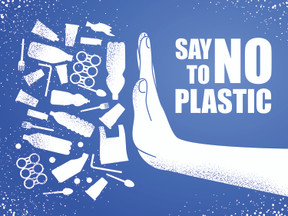Posted by Jordana Merran on 19th Apr 2019
Microplastics are Blowing in the Wind—and Here’s Why That Matters
If we’re going to stop ocean plastic pollution, we need to understand where plastic comes from and how it moves
If you follow ocean plastic news you may have noticed a flurry of articles about a recent study showing that windborne microplastics have reached remote Pyrenees peaks. The headlines ranged from straightforward (like USA Today’s Blown by the wind, ‘microplastic’ pollution discovered in pristine mountain peaks) to daunting (like Fast Company’s Microplastics are being blown all over the world, and it’s terrifying), and it’s tempting to wonder: is this actually a big deal?
It’s a fair question. After all, we already know that microplastics and plastics more generally have been found in every corner of the ocean—from the Mariana Trench to Arctic ice. More than 800 marine species are demonstrably affected by plastic, from tiny plankton to majestic whales. How is this different?
Dr. Chelsea Rochman, Ocean Conservancy Science Fellow and Assistant Professor in the University of Toronto’s Department of Ecology and Evolutionary Biology, put it in perspective this way:
The study reiterates the fact that our use of plastic materials and the way we dispose of them has led to global contamination, even of areas that we tend to think of as pristine.
But more importantly, the study further demonstrates that microplastics are not just an ocean pollutant. They have become ubiquitous, comparable to other persistent contaminants like PCBs and DDT. They are found cycling in the atmosphere, circulating with ocean currents, buried in soils and in freshwater streams and lakes.
If we’re going to stop ocean plastic pollution, we need to understand where plastic comes from and how it moves. At Ocean Conservancy, we are closely following the growing body of science on this to figure out which strategies will be most effective in keeping the most plastic out of the ocean.
In the meantime, one thing is clear, according to Dr. Rochman: “The human plastic footprint has become global. Plastic pollution may just be the marker of the Anthropocene.”

